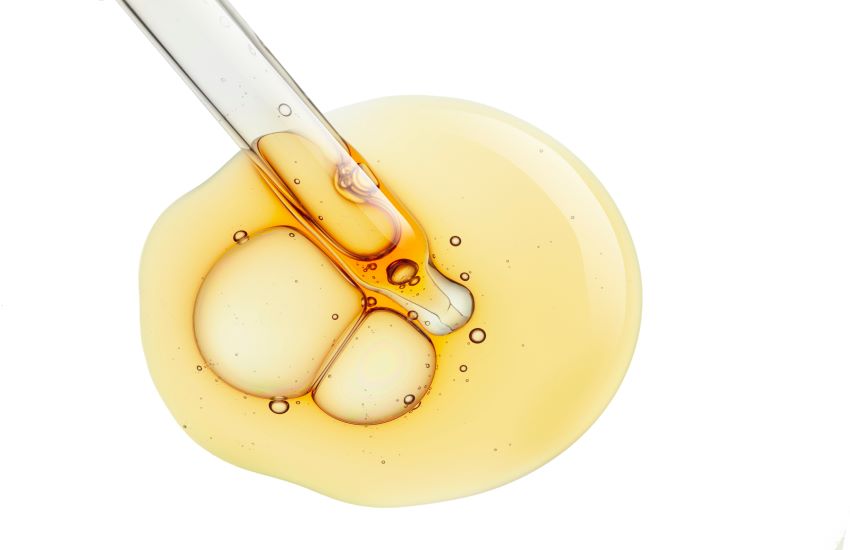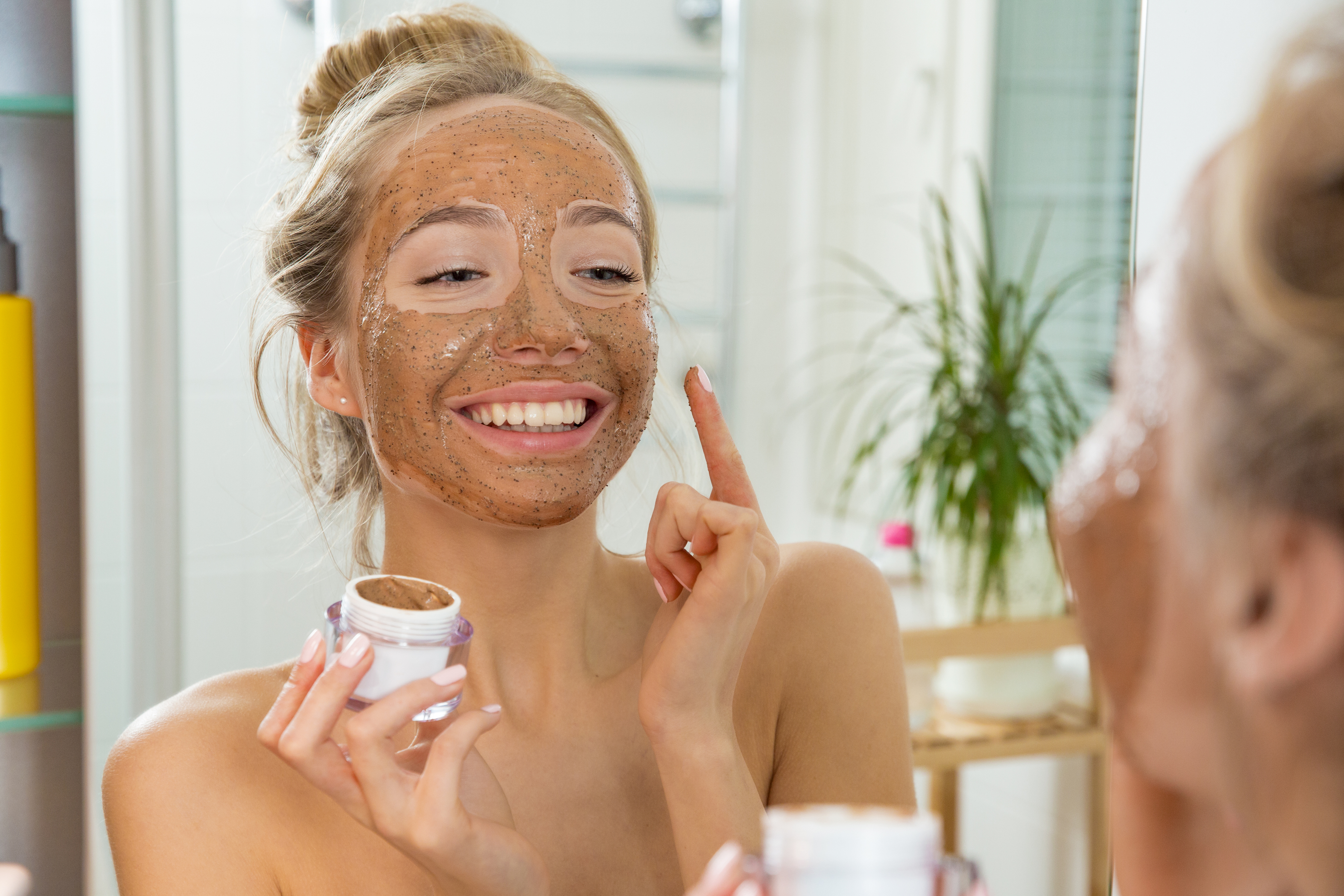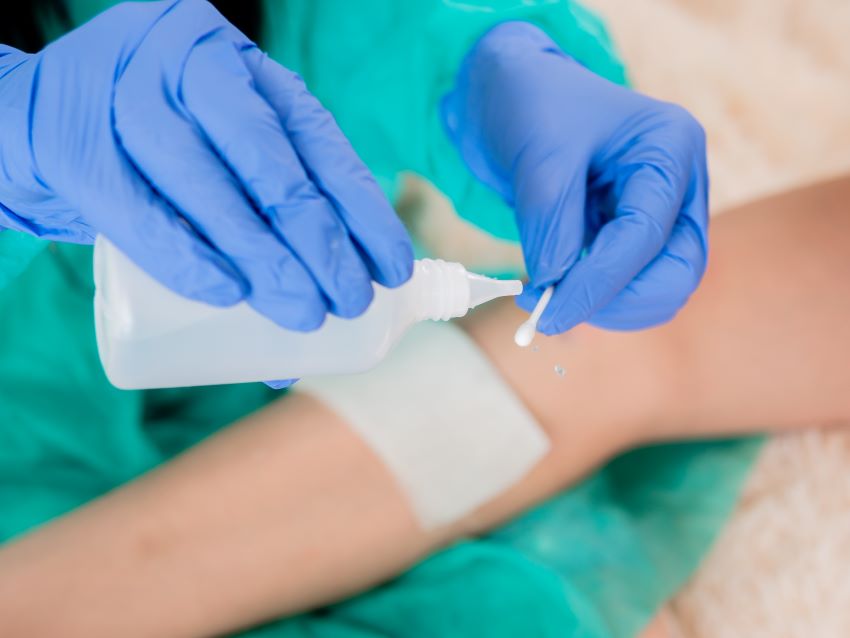Teenage skin can be super sensitive and need some ultra care, since puberty hits right around that age. Teenage skin…

 Healthy Skin
Healthy Skin
Which Vitamins are Best for Healthy Skin?
As the health and wellness industry continues to grow, it can be difficult to determine which are the best vitamins for healthy skin and the best supplements for each system in your body. When it comes to beautiful skin, we have broken down which skin vitamins are the best to incorporate into your skincare routine, whether it is taking an oral supplement, including them in your diet, or applying them topically to your skin.
Vitamin A
Vitamin A is one of the extremely important vitamin supplements when it comes to keeping your skin healthy. It helps every layer of the skin as it works as an antioxidant, can prevent damage from sun exposure, and binds to receptors in your skin cells to help strengthen the epidermis. Without enough Vitamin A, your skin can become dry, itchy, and bumpy.
The most common form of Vitamin A in skincare is an over-the-counter retinol. Retinol is a powerful derivative of Vitamin A that is applied topically to the skin. It encourages skin cell turnover to produce new healthy skin layers. Retinol can also be a powerful acne fighter as new skin cells form faster, replacing the acne. In the form of a prescription topical treatment commonly known as tretinoin, Vitamin A can help to solve hyperpigmentation and fine lines.
Although retinols and tretinoin are powerful and effective, they can be extremely intense when beginning use, especially to those with sensitive skin. At first, you may experience redness and dryness when using because of the increase in skin cell production. Be sure to start off with a lower concentration formula and if you are experiencing these side effects, do not use retinol every day. Apply it every other day at the end of your night-time skincare routine right before your moisturizer. Do not apply retinol in the morning as it makes your skin more susceptible to sun damage. And finally, be patient when using Vitamin A derivatives. It will take a few weeks to start seeing the desired results. By the end of the first month, you should start seeing the results. You will see a reduction of fine lines and hyperpigmentation and healthier glowing skin in its place.
Vitamin C
Vitamin C is naturally found in the skin at high levels. It is an antioxidant and helps collagen in your skin hold its place. Because of its role in collagen production, Vitamin C is a key ingredient in anti-aging skincare products. Vitamin C also helps to decrease cell damage from sunlight and enhances the effectiveness of sunscreen.
A deficiency of Vitamin C is unlikely due to the high levels of the vitamin found in food, supplements, and over-the-counter products. However, if you do not think you are reaching your daily dose of Vitamin C that is 1,000mg you can eat more citrus-based foods, take supplements, or use topical skincare products that contain the vitamin.
Including Vitamin C in your skincare routine through the use of topical products can be very beneficial. Vitamin C serums and creams can help reduce hyperpigmentation to help you achieve a balanced complexion.
Vitamin D
Vitamin D is produced in the body when your skin is exposed to sunlight but too much of it may result in Actinic Keratosis, a skin condition that would normally require medical attention from an AK dermatology clinic. The vitamin plays a key role in producing an even skin tone, can help treat psoriasis, and keeps your bones healthy.
To get enough Vitamin D for skin health you can include more of it in your diet by eating fortified foods like orange juice and yogurt or eating foods that have the vitamin naturally like salmon and tuna. You can also expose yourself to the sun to encourage vitamin D production in the skin. However, this comes with a risk of sun damage so you must be careful when using this method. Always apply sunscreen before going into the sun, do not go during peak hours (typically this is from 10 am-2 pm), and only get about 10-15 minutes of sun exposure.
Vitamin D is not typically sold in topical forms for skincare, however, there is a cream that can be used to treat patients that suffer from psoriasis. It is not found in over-the-counter products.
Vitamin E
Vitamin E is another antioxidant that works in the skin to absorb energy from UV light, protecting your skin from sun damage that leads to skin cancer, wrinkles, and fine lines. Vitamin E and Vitamin C work in tandem to strengthen skin cell walls.
Typically, our bodies produce enough Vitamin E through the oily substance in our skin’s pores known as sebum. However, if you do have dry skin, Vitamin E can be applied topically, can be taken in the form of a supplement, or you can eat more foods that contain the vitamin (nuts and seeds) to help your skin retain more moisture.
Additionally, due to its antioxidant properties, topical Vitamin E is used to treat different skin disorders including burns, scars, and wounds to help heal the skin and get it back to its normal texture.
Vitamin K
Vitamin K is one of the best vitamins for healthy skin as it is an essential vitamin in your body’s blood clotting process. Blood clotting is an important stage in wound and bruise healing. It is also known to help treat stretch marks, spider veins, scars, dark spots, and dark under-eye circles.
Vitamin K deficiencies are fairly uncommon, but to increase your daily amount you can include more foods in your diet that contain the vitamin. These foods are kale, spinach, cabbage, lettuce, and green beans.
When used topically, Vitamin K is typically used by doctors who apply topical creams on their patients who just underwent surgery. It helps to reduce swelling and bruising after surgery and can help speed up the wound’s healing process as well.
As the largest organ in your body, you must look out for common skin issues and take care of your skin. It needs plenty of care and treatment, especially if you are suffering from any skin conditions. For treatment and prevention, Vitamins A, C, D, E, and K are crucial to include in your diet and skincare routine to keep it healthy and glowing.
Sources
This blog is based on research and/or other scientific articles and is written by our experienced Chief Strategy Officer and Pharmacist, Ronak Desai. This blog is fact checked by our educated Pharmacist in Charge, Darshan Patel, who additionally runs our Apotheco Manhattan location.
Here at Apotheco Pharmacy Group, our goal is to provide the most up to date and accurate information on health and dermatology related topics. We do this to ensure our readers can make informed decisions based on factual content. All blogs undergo an extensive review process before posted.
This blog contains trusted sources. All sources are listed at the bottom of this article with hyperlinks that take you directly to the source.





